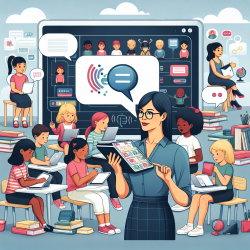As practitioners, our primary goal is to foster the best possible outcomes for children. One way to achieve this is by leveraging the findings from the research article "Early Communication Skills and Special Education Outcomes at School Entry: Implications for Pediatric Care and Screening" by Matthew H. Kim and Laura Lee McIntyre. This study provides valuable insights into how early communication skills, particularly expressive language, can predict the need for special education services, including speech therapy, at kindergarten entry.
The study followed 139 children eligible for early intervention or early childhood special education services, examining their expressive and receptive language skills at age 3. The findings indicated that stronger expressive language skills at age 3 significantly reduced the likelihood of requiring speech therapy at kindergarten entry. Specifically, a 1 standard deviation increase in expressive language scores was associated with a 44.8% decreased likelihood of receiving speech therapy.
Here are some key takeaways and actionable steps for practitioners:
- Early Screening: Implement routine screening for expressive and receptive language skills during pediatric visits. This can help identify children who may need early intervention services.
- Collaboration: Work closely with speech-language pathologists, educators, and parents to develop a comprehensive care plan that addresses both expressive and receptive language deficits.
- Holistic Approach: Consider a child's overall development, including cognitive, physical, and social aspects, to provide targeted interventions that can reduce the need for special education services.
- Data-Driven Decisions: Use standardized tools like the Vineland Adaptive Behavior Scales to assess early communication skills accurately and track progress over time.
By focusing on these areas, practitioners can better support children in their early years, potentially reducing the need for extensive special education services later on. The study underscores the importance of early identification and intervention, highlighting how improved expressive language skills can lead to better educational outcomes.
To read the original research paper, please follow this link: Early Communication Skills and Special Education Outcomes at School Entry: Implications for Pediatric Care and Screening.










